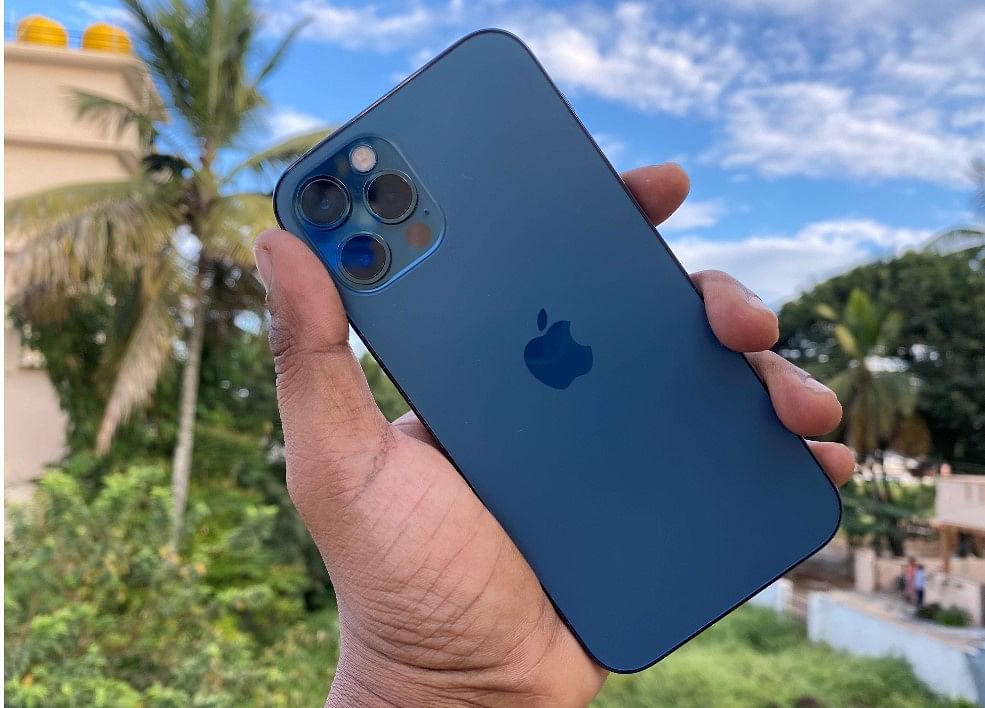
Apple, earlier in the year at World Wide Developers Conference (WWDC) 2020 in June announced to bring sweeping changes to improve user-privacy practices by application developers and also revealed plans to launch easy-to-understand labels for device owners to know how much and what type of user-information is being tracked by the apps.
On December 8, Apple began requiring developers to submit this new privacy information to the App Store in order to update their apps. This does not mean developers have to make any changes to their app or business model, but it is a simple task about providing users with transparency about what data, if any, apps collect, use to track, and link to the user.
As promised, Apple App Store on Monday (December 14) across all platforms-- iOS, iPadOS, macOS, watchOS, and tvOS--now feature a separate section with a simple summary (shown below) about the app's privacy practices which details what type of user-information they are collecting from the device. It has been categorised into three types-- 'data used to track you (aka customer)', 'data linked to you,' and 'data not linked to you'.
And also, app developers have to disclose whether are going beyond their own app to other third-party apps to track user behaviour, location, browsing history, scrolling emails, financial details, and other information to deliver targeted ads for monetisation of their app business.
Going forward, apps have to self update their privacy practices, whenever they plan to release a new update. Also, Apple will help new or uninformed app developers on how to fill out the forms on the developer portal. If not adhered to the policy, they risk getting penalised or get evicted from Apple App Store.
It should be noted that even Apple native apps such as Safari, Maps, Photos, Messages, Siri, Apple News, Wallet, Apple Pay come under the same stringent user-privacy policy. For instance, the company, earlier in the year, improved privacy features of Safari to offer Privacy Report, which not only reveals the names of the app and websites indulging in cross-site tracking but also offers the option to the user to block them on all Apple devices. You can check out the Apple Privacy website with well-displayed information (here).
Also, Apple device owners can upgrade existing accounts to Sign in with Apple and choose to share their approximate location with app developers rather than their precise location when granting any app location access and get even more transparency into an app’s use of the microphone and camera.
With simple glanceable information on apps user-privacy policy, consumers going forward, become more conscious while granting permission to apps for location tracking and other private details.
Also, Apple is not stopping here, it has plans to bring a more stringent policy in the coming months. It has already notified all the registered application companies that Apple intends to bring the App Tracking Transparency feature to all its devices via a software update. This will also give app users to block all permission to track private details.
This is likely to have a major impact on big companies such as Facebook, Amazon, Google, and others, as they will lose out on billions of Dollars in revenues generated by targeted ads based on user-tracking.
Nevertheless, this is a welcome move by Apple and we hope Google too, brings such novel changes to its Android ecosystem, as there is an urgent to need to bring reforms to check on unethical practices of tracking user information for monetary gains by app developers in addition to scaling up security to block malware-laced bad apps entering Play store.
Get the latest news on new launches, gadget reviews, apps, cybersecurity, and more on personal technology only on DH Tech.
